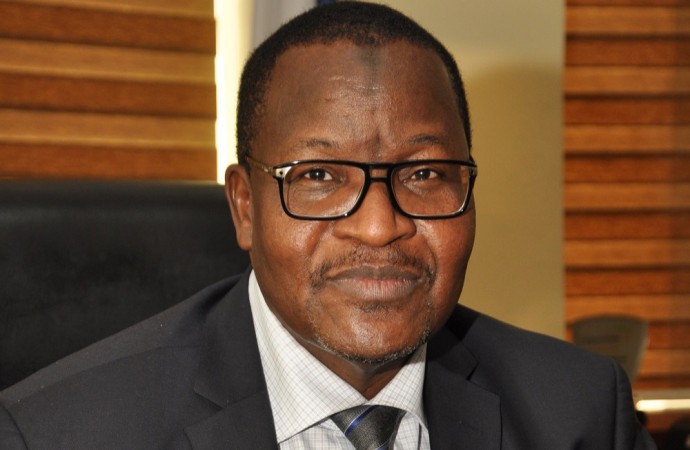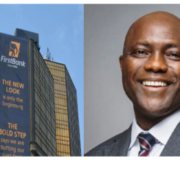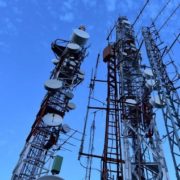By Segun Oruame, Lagos
Nigeria’s telecom regulator will not regulate OTT services despite pressure to do so, the Executive Vice Chairman/CEO of Nigerian Communications Commission, Prof. Umar Garba Danbatta, has stated at the West Africa Convergence Conference (WACC) 2016 that held recently in Lagos.
Danbatta said the NCC is not unmindful of agitations by legacy operators and other stakeholders to have OTTs regulated as they are deemed to be eroding the profit of licensed operators. But he argued that the Commission had opted to adopt technology neutrality convinced that technology cannot be regulated but operators could be regulated to comply to the policy goals of the country as it concerns the telecom sector.
Over-the-top (OTTs) is service or content whether audio, video, and other media over the Internet without the involvement of a multiple-system operator in the control or distribution of the content. OTT providers include Whatsapp, Facebook, Skype, etc. They are banned in some regulatory jurisdictions such as in the UAE; in other countries, they are restricted. In Nigeria, the regulator has opted not to regulate OTTs. In some jurisdictions, legacy operators are already providing ‘Telco-OTT’ – that is where “a telecommunications service provider delivers one or more services across an IP network.” This will ultimately be the case in Nigeria, to go by the expectations of the NCC and most experts.
Drawing parallel with similar debates during the early emergence of VoIP, Danbatta said the regulator had become convinced that it was best to be technology neutral and allow market forces to determine how or what technology operators will deploy to deliver services. In his presentation sent in for WACC 2016 on “Regulation, Technology Neutrality and New Telecom Services in the era of Convergence” Danbatta stated: “There are also agitations in the industry over OTT services, coupled with arguments that the OTT services are competing with services provided by licensed network operators that create employment and pay tax to government. The agitations also point to the fact that, OTT service providers are not locally licensed to offer the services being provided. Just as Internet services may be consider ubiquitous, so also are OTT services not limited by geographic boundaries, because the services leverage on existing infrastructure such as the Internet.
“The counter argument being considered is that, OTT services run on existing platforms (the Internet) offered by licensed operators which a subscriber in the value chain must have paid for. The licensed operators are getting revenue from the Internet subscription, which may be considered small, when compared to the volume of services offered using OTT applications.
“It may be recalled that, similar agitations ensued on the emergence of Voice over Internet Protocol (VoIP) services. The incumbent telecommunication operator in Nigeria, Nitel and a few licensed companies had international gateways access capabilities for transiting and termination of International traffic to and from Nigeria, while the VOIP enabled operators have no such facilities and there was pressure on the regulator not to allow the deployment of VoIP services because the service will lead to loss of traffic and revenue by International gateway access providers.
Unlike other Regulators, the NCC resisted the pressure of restricting the use of VOIP services and today, VoIP technology has enabled all operators route and transit international traffic independently without passing through the traditional International gateway. It is believed that, this development has led to the reduction of termination cost of international traffic.”
To Danbatta, what matters at all times was not the dynamics of technology as convergence deepens but that the regulator remains both effective, responsive and fair to all. His words: “In the area of convergence, a lot is happening and new services and advancement in technologies are emerging. Higher Internet speed is being offered by our operators especially, those operators that have deployed LTE technology.
“We have over five (5) operators using LTE technology in most of our major cities. In our homes today, Internet enabled TVs and setup boxes provide additional value and experience to our people. With higher Internet speed, lots of services can be provided and user experiences are enhanced, making it possible for people to subscribe to video on demand platforms and online radios.
“The future holds a lot of promise for us all, we understand that Nigeria and other West African countries (ECOWAS) are working towards a new Analogue to Digital Terrestrial Television (DTT) switch over date of June 2017. The migration from Analogue to DTT will free up more spectrum for mobile broadband and other services.
“I would like to reiterate the fact that, the Commission will continue to provide the enabling environment including the formulation of technology neutral regulatory frameworks to promote growth and development in the industry.”
WACC is the annual stakeholders’ forum on convergence trends in West Africa organised by Knowhow Media & Market Intelligence International Limited. The 2016 edition drew participants from across sectors with over 200 people in attendance. This year’s event featured presentations from the Rack Centre, NigComSat Limited, Nigerian Communications Commission, Medallion Communications, Association of Outsourcing Practitioners of Nigeria (AOPN), Integrated Corporate Services Limited, and Consultancy Support Services (CS2) Ltd.
The event featured a startup session anchored by nHub of Jos with remarks from Founder/CEO of Signal Alliance Ltd; Mr. Collins Onuegbu, Founder/Chairman of Zinox Technologies, Chief Leo Stan Ekeh; Co-founder/Chairman of Sidmach, Mr. Chijioke Anthony Eke; and Founder/CEO, Precise Financial System (PFS), Mr. Yele Okeremi.





























